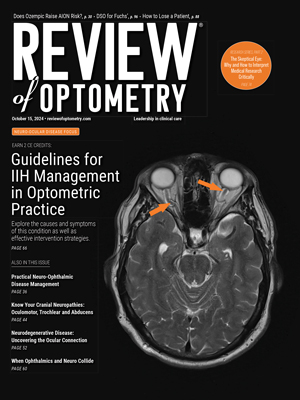Major clinical trials have indicated only 27% to 40% of diabetic macular edema (DME) patients have vision improvement of more than 15 letters after intravitreal anti-VEGF injections. Delving into why a majority of patients are poor responders to this therapy, a team of researchers looked into patients’ genes and found protein coding genetic variants may influence responses to therapy.
This small investigation, published as an online abstract as part of ARVO’s 2020 meeting, used whole exome sequencing on two cohorts: good responders who had a reduction of baseline central retinal thickness of more than 25% after three monthly anti-VEGF injections (n=4) and poor responders who showed a reduction of central retinal thickness of less than 10% or an increase after three monthly injections (n=6).
Compared with good responders, the analysis revealed poor responders had an enrichment of ultra-rare variants (minor allele frequency of <0.001%) in six genes. Additionally, the investigators found poor responders had far more rare variants in GSTM1 and RRN3.
Research shows GSTM1 variations can influence certain drugs’ effectiveness in addition to cell antioxidant capacity, while RRN3 can regulate transcription initiation by RNA polymerase I and play a role in inflammatory response and apoptosis, the researchers noted.
Further validation studies are warranted in diabetic animal models and cell cultures, they added.
Cabrera A, Rangasamy S, Christopher Legendre C, et al. Genomic approach to identify “good” vs. “poor” responders to Anti-VEGF therapy in patients with diabetic macular edema. ARVO 2020. Abstract #1171. |

